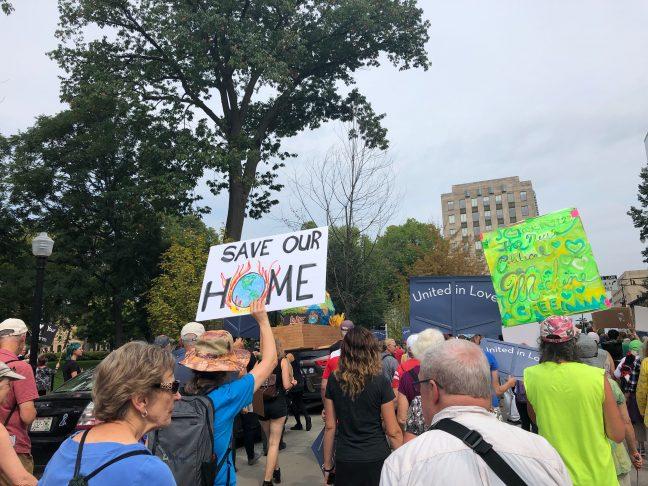President Joe Biden recently commended the City of Madison’s plan to purchase 46 electric buses in an effort to reduce harmful greenhouse gas emissions. The purchase of these buses is the first phase of Mayor Satya Rhodes-Conway’s Climate Forward plan, which envisions 27 of these buses in use by 2024.
This may seem like an insignificant implementation when considering the immense pollution occurring in other sectors within the city and even across the country. But the City of Madison predicts replacing diesel buses with electric buses within Madison’s Metro system alone can save approximately a quarter million gallons of fuel per year, an undeniable indication real change can be made at the city level.
But, it is important to note this project relies entirely upon federal funding from the Biden Administration’s Bipartisan Infrastructure Law. The new legislation invests $89.9 billion in public transit, funds environmentally-friendly infrastructure such as electrical vehicle chargers, passenger rail transportation and clean up missions at retired, toxic industrial sites.
Madison’s recent purchase of electric buses is evidence of this large-scale, national funding translating to substantial climate-friendly transformations in American cities. It is important to consider, however, whether future climate change efforts have potential for success without federal funding.
The federal government’s involvement in challenging climate change cannot be relied upon as different presidents continuously change environmental policies. For instance, during former President Trump’s term, the U.S. exited the Paris Climate Agreement. But, years later, Biden enacted the Bipartisan Infrastructure Law.
It is important, therefore, that states and cities lead the fight against climate change for a more stable transition towards an environmentally-friendly economy.
In fact, there is already evidence of state leadership in these efforts. When Trump announced the U.S. would resign from the Paris Climate Agreement, states like California and New York created the U.S. Climate Alliance, a pledge taken by member states to continue to adhere to the Paris Climate Agreement’s goals. According to the Wilson Center, by 2020, states involved in this commitment reduced their carbon emissions by a whopping 17% below their levels in 2005.
Moreover, states continue to implement individual policies and plans to reduce greenhouse emissions. It is evident that states are capable of pioneering real climate improvements into the distant future despite the federal government’s fluctuating support.
While the federal policies instituted by progressive federal leaders like Biden are undeniably effective in supporting climate action, such as the transition to electric buses in Madison, we cannot be entirely reliant upon national support. Instead, state efforts must remain at the forefront of the fight against climate change.
Not only are state policies effective in the face of unsupportive federal governments, but they also contribute to an international understanding that certain states will continue to combat climate change regardless of the federal government’s stance.
Aanika Parikh (aaparikh5@wisc.edu) is a freshman studying molecular and cell biology.


